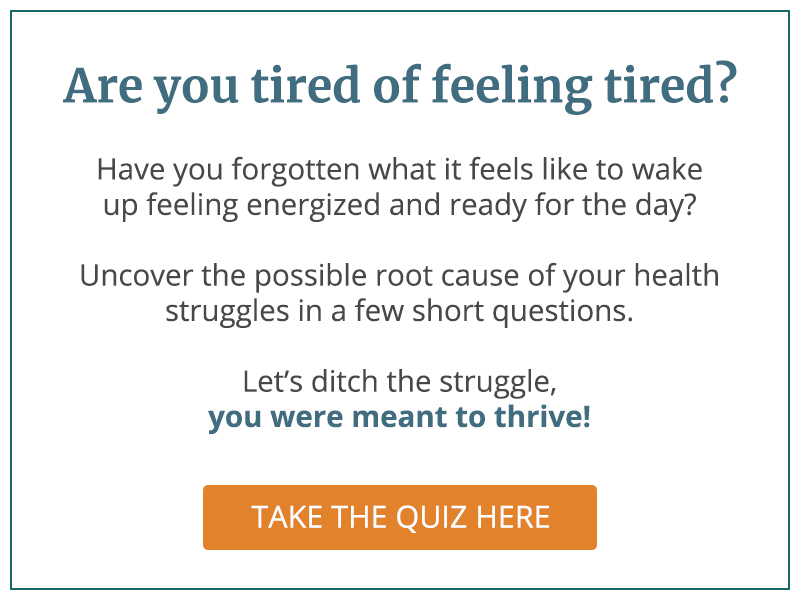Do you go about your day in a bit of a haze? Do you go from one activity to the next, with no time to stop and gather your thoughts or breath? Maybe you read and reread a paragraph a couple times without realizing what the paragraph said. Maybe you’re eating your favorite snack – like a chocolate bar – and go to eat the last bite only to realize you already mindlessly ate it! What a bummer…
All of a sudden, you snap back into the present moment and realize you were off in your own little world, worrying about something that happened in the past or something that’s going to happen in the future.
If you find yourself in this position more often than you’d like, practicing mindfulness can help you focus on the present, so you can enjoy what is in front of you. It can help you release negative thoughts so they won’t hold you back from enjoying a full healthy life.
What is Mindfulness?
Mindfulness is when you become aware or conscious of the present moment. It’s when you can acknowledge and accept your passing thoughts and feelings without any emotional attachment. You realize when your thoughts are going elsewhere, and you can bring your awareness back to the present moment without judgement.
Can Mindfulness Rewire Our Brains?
It used to be said that our brains are fully grown and organized by the age of 18. After that, our brains only use that portion developed in our younger years. However, with new studies emerging, we are seeing that our brain capacity and capability is no longer believed to be predetermined by our childhood or genetics. We can, in fact, keep expanding our brain capability, and can reorganize information in our brain up until the day we die.
Within our brains we have neurons. These are like the message carriers. Everytime you act in the same way or do a specific activity the neuron pathway becomes stronger. Repetitive behavior and/or thinking reinforces those neurons. When neural pathways are strong, they can set off those neurons unconsciously. Just like how neuron connections can be strengthened, they can also be weakened or even diminished. I call this pruning. It’s just like pruning weeds from your garden.
So you might ask, “How does mindfulness really work?”
When you take the time to focus on your thoughts and are conscious of your mind, you can begin to “rewire” your brain. By consciously being aware of your thoughts in the present moment, you are strengthening those neuron connections that are being used. As you continuously practice mindfulness, it will get easier and easier to focus on the present moment since those pathways are getting used routinely. You will be able to acknowledge your thoughts and accept them without emotions.
In an 8 week study, it showed how mindfulness meditation changed the makeup of the brain. The amygdala or the “fight or flight” section of the brain reduces in size as the prefrontal cortex ,known as the decision making, higher level of thinking and concentration area of the brain, enlarges. The connections to the amygdala also weaken and the connections to the prefrontal cortex strengthen. This alteration reduces the stress and inflammatory chemicals that are commonly given off by the “fight and flight” amygdala connection.

How to Practice Mindfulness
You can practice basic mindful meditation by doing the following.
- Set aside dedicated meditation time – You only need 5 to 20 minutes a day to see the benefits of this practice.
- Sit comfortably – Cross your legs conformably or if sitting on a chair, sit up straight with your feet placed on the floor. Lay your hands on your legs, palms facing up.
- Soften your gaze – Don’t focus on anything in particular. If you want, you can even close your eyes.
- Begin to feel your breath – Bring attention to your breath. Feel your chest rise and fall with every inhale and exhale.
- Take notice of when your mind wanders away from your breath – Bring your focus back on your breath in the present without judgement. Let your thoughts come and go without attaching any emotion to them. Then go back to focusing on your breath.
- Treat your wandering mind with kindness – It is normal for your mind to wander. When you become aware of your wandering mind, welcome your mind back to the present.
This is just the basics of mindfulness meditation, but there are numerous ways you can practice. There are more techniques and meditative practices in the free Built to Thrive book, like Heart-Centered Meditation and Metta Meditation: The Meditation of Forgiveness.
Mindfulness Meditation Benefits
Practicing mindfulness meditation can have a wide range of benefits to your physical to psychological health. Here are some of the benefits you could experience:
- Increased Attention Span
- Reduced Stress and Anxiety
- Aid in Depression
- Improved Physical Health
Mindfulness Can Help Your Attention
In one study, it was shown that practicing mindfulness for 8 weeks improved attention. They focused on a mindfulness-based stress reduction (MBSR) course and saw that, compared to the control group, they had better attention and significant improvement of an attentional subsystem of orienting. Another 4-week study also showed that mindfulness meditation improved sustained attention on a signal detection task.
It doesn’t take years of mindful meditation practice to reap the benefits. Attention span can be improved with as little as 4 days of meditation training. Start your practice today and you can see its benefits within a week.
Mindfulness Helps Stress and Anxiety
Meditation can help reduce your stress and anxiety levels. First off, by taking time out of your day to sit still, you can breath and relax which can help your stress right off the bat. Most people don’t set time aside and they bounce from one activity to the next, without giving themselves a break. Giving yourself that 5-20 minutes a day can help your body decompress and allow it to relax.
Another 8-week meditation-based stress reduction intervention also showed significant reduced anxiety in medical students and premedical students. Mindfulness-based stress reduction (MBSR) performed by patients with social anxiety disorder saw a decrease in negative emotion experience and reduction in amygdala activity.
Mindfulness For Depression
If you have battled depression in your life, mindful meditation could be an inexpensive, natural and easy way to help. Over 4 months, mindfulness-based cognitive therapy (MBCT) patients said that it was more or just as helpful as antidepressants or counseling for depression. 75% of the patients in the study who were on antidepressants were able to come off of them after 15 months of follow-up.
Patients who are battling cancer have also found benefits in practicing mindfulness. This practice can improve the mental health of those cancer patients, giving them a way to manage their emotions. If cancer patients acknowledge and accept their thoughts, they may feel less imprisoned by them. It can improve their mood, help them sleep better and reduce their depression.
Mindfulness For Physical Health
Practicing meditation can not only help you psychologically, but physically as well. A study involving 441 college women showed that higher levels of mindfulness resulted in better sleep, healthier eating and better physical health.
Practice Mindful Meditation to Improve Your Life
Once you get in touch with your thoughts and allow them to passively come and go, you will start to see a shift in your life. Mediation will allow you to be in the present moment and fully accept what is. When you encounter a negative or painful thought, you can acknowledge it and then let it go freely. Mindfulness is when you don’t attach to a thought but rather accept it and then let it pass.
When you practice mindful meditation, you learn to let more in, and let more go. Don’t let your mind judge yourself and your thoughts, just let them be as is.
When you get stressed or encounter a problem in the day, it’s not about avoiding it and distracting yourself from it. Rather, you will learn to become aware and conscious of the situation and accept those thoughts you are having. Once you become conscious of that thought, you can let it go, realizing that it is just a thought and it cannot affect your life.
If you want to learn more about mindfulness meditation and how it can help your health, get your FREE copy of Dr. Shelly Sethi’s online book, Built to Thrive, to get started.
APPLY to become a patient at our practice. We work with clients in person and via telemedicine in the US. We’ll help you optimize your health! Click here.


